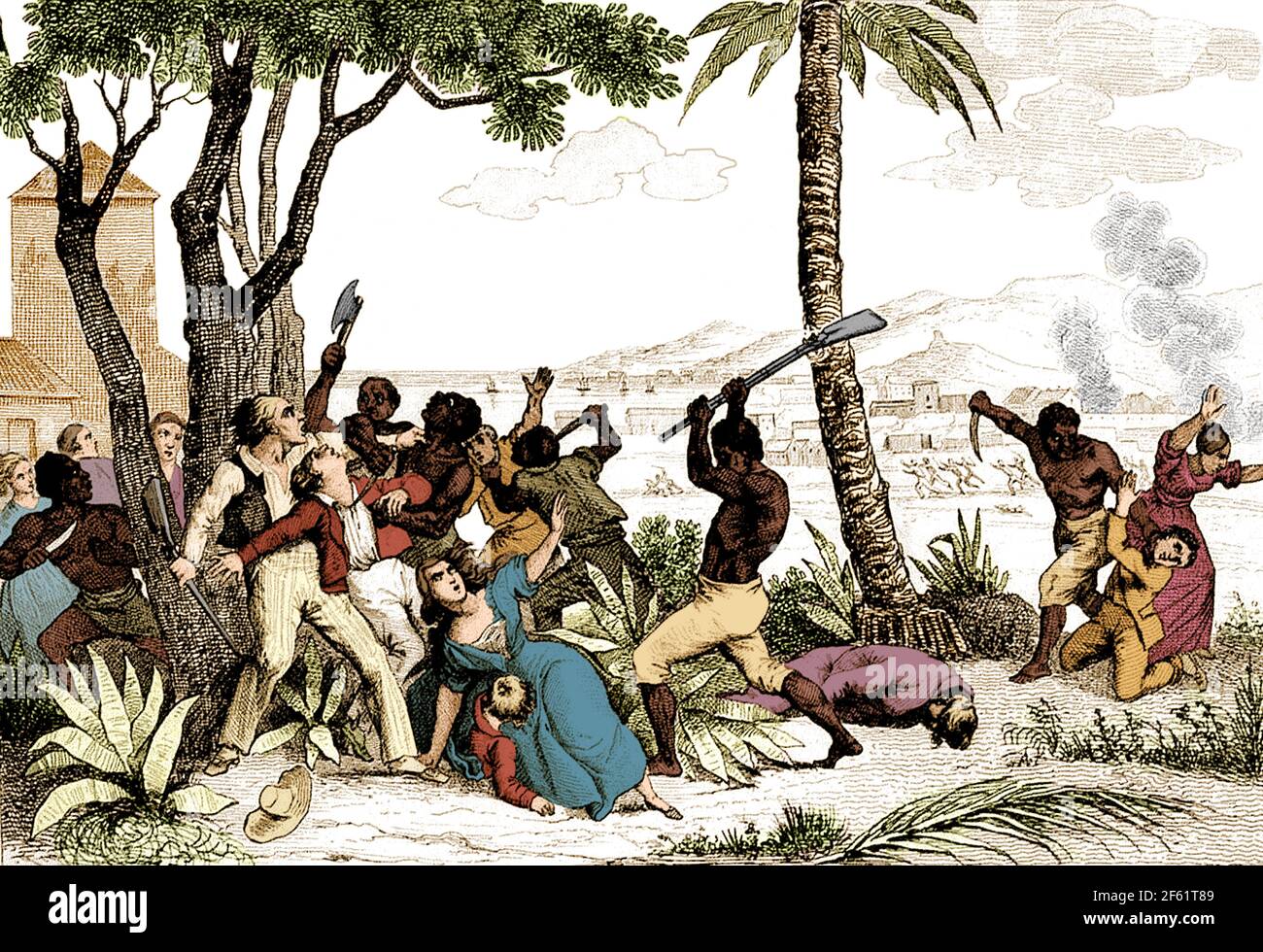

The external debt of Haiti is a notable and controversial national debt which mostly stems from an outstanding 1825 compensation to former slavers of the French colonial empire and later 20th century corruptions.
The French Revolutionary and Napoleonic Wars in Europe allowed (actually they got their asses kicked) rebel Haitian slaves to overpower French colonial rule and gain independence in the 1791–1804 Haitian Revolution. The restored French monarchy, supported by European monarchies, sent the 1825 French expedition to Haiti to demand, with military menace, massive compensations: Haiti had to repay the French government and former slaveholders the modern equivalent of US$105 billion, later reduced to US$21 billion for the loss of massively profitable slave-plantation assets and revenues. This price for independence was financed by French banks and the American Citibank.

Haiti was the richest and most productive European colony in the world going into the 1800s. Haiti’s legacy of debt began shortly after a widespread slave revolt against the French, with Haitians gaining their independence from France in 1804. President of the United States Thomas Jefferson – fearing that slaves gaining their independence would spread to the United States – stopped sending aid that began under his predecessor John Adams and pursued international isolation of Haiti during his tenure. France had also pursued a policy that prevented Haiti from participating in trade in the Atlantic. This isolation on the international stage made Haiti desperate for economic relief.
France, with warships at the ready, sailed to Haiti in 1825 and demanded Haiti to compensate France for its loss of slaves and its slave colony. In exchange for French recognition of Haiti as a sovereign republic, France demanded payment of 150 million francs. In addition to the payment, France required that Haiti provide a fifty percent discount on its exported goods to them, making repayment more difficult. In 1838, France agreed to reduce the debt to 90 million francs to be paid over a period of 30 years to compensate former plantation owners who had lost their property; the 2004 equivalent of US$21 billion. Historians have traced loan documents from the time of the 1825 Ordinance, through the various refinancing efforts, to the final remittance to National City Bank (now Citibank) in 1947.
In 2004, the Haitian government demanded that France repay Haiti for the millions of dollars paid between 1825 and 1947 as compensation for the property loss of French slaveholders and landowners as a result of the slaves’ freedom. In 2015, the French government rejected this demand as well as any reparations in general.
